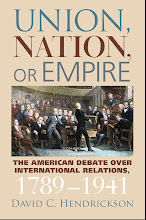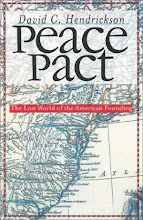1. The conclusion seems irresistible that the defenders of capitalism proved its undoing. The most zealous proponents of free markets put them at profound risk. The financial institutions that stood at the epicenter of the world economic order proved to be based on a scam, at the center of which was the privatization of profit and the socialization of risk. Capital markets whose fundamental rationale was the most efficient allocation of scarce resources for investment failed miserably in their basic function. The most egregious rates of executive compensation ever produced the biggest failures of economic leadership ever. To those of us with a sentimental attachment to free markets as against command economies, all this is a blow.
2. We are made aware of how grave a responsibility is the management of a country’s currency. Money and credit are like oxygen; taken for granted in most circumstances, but when withdrawn inducing asphyxia. In terms of economic theory, the whole experience bears out the vital importance the Austrian economists placed on the credit cycle and underlines their skepticism toward fractional reserve banking. This is not to urge a return to the gold standard, but it is to urge derision and contempt upon those who constructed the house of cards and who ignored its vulnerabilities. There are many villains in the piece, but Alan Greenspan will surely stand out in retrospect as bearing the heaviest responsibility. Blithely indifferent to the dangers of debt and derivatives, he led us down the garden path.
3. We move inexorably toward the socialization of credit risk and a much larger role for the state in the direction of the national economy. Courtesy of Bush and Greenspan, Marx has made a comeback. In The Communist Manifesto, the fifth proposal in Marx’s ten point plan for placing the means of production in the hands of the proletariat was the “centralization of credit in the banks of the state, by means of a national bank with state capital and an exclusive monopoly.” Marx didn’t get it quite right; we’re getting there via the dictatorship of the kleptocracy. But hey, it's a start.
4. The collapse of America’s credit bubble is very likely to lead, both here and abroad, to the revival of various forms of national socialism. That is not a prediction of the revival of German National Socialism, but simply that the direction of economic affairs is likely to be swayed much more by the dictates of nationalist and socialist impulses. The Euro is especially vulnerable to the centrifugal forces unleashed by the crisis, with unfavorable consequences for the European experiment. Sheer cronyism may win out over state socialism, to be sure, and financial internationalism will battle to survive against the reassertion of nationalism. Still, I wouldn't underestimate the power of nationalist and socialist tendencies in the new era.
5. The opportunity cost of the financial bailout is huge. Moreover, insofar as it is based on the idea of reflating the financial, insurance, and real estate sectors (the FIRE economy), it is very dangerous to long term economic revitalization. The old Wall Street model is broken because most of the things they made money on (securitization, fees, leverage) turned out, in due time, to be based on a fundamental misapprehension of risk. Real estate remains overvalued by various traditional measures. A far more logical use of public resources is the tackling of our energy and environmental problems, both of them requiring large investments in infrastructure and alternative energy. We face the challenge of a generation in adapting to these challenges; the economic crisis, and the response given to it thus far, constitutes a formidable obstacle in doing so.
6. The financial crisis has opened up a great gap between our aspirations and resources. This must have profound implications for American foreign policy. We have a foreign policy more ambitious than that crafted in the heady days of unipolarity in the late 1990s, when observers marveled at the sheer surfeit of American power in its military, economic, ideological, and cultural dimensions. Though American power has weakened on every count, there is no reconsideration of objectives. The last thing that presidential candidates wish to do is to reconcile themselves to limits on American purposes. It goes entirely against the American grain, which treasures happy talk and fairy tales over the recognition of constraint. But finance is inexorable: it sets limits, diminishes horizons, induces constraint. Surely a profound adjustment in America's world role is coming.
The AI productivity boom is not here (yet)
10 hours ago


